In South Africa, a Virus Brings a Community Together
In South Africa’s Cape Winelands, a village is unified with a feeding initiative largely under the leadership of chefs who look toward recovery and a more secure future.
The village of Franschhoek, which means “French corner” in Afrikaans, is nestled in a corner of the Franschhoek Valley, about an hour’s drive from Cape Town, South Africa. One of the oldest towns in South Africa, it was established in the late 1600s by French Huguenots, escaping religious persecution in Europe. So the winemaking tradition began, as well as the propensity for naming streets, wine estates, guesthouses and restaurants in French. It’s hard to believe elephants once roamed this valley in which Methode Cap Classique (South Africa’s sparkling wine) and charcuterie platters now rule.
Considered the culinary capital of South Africa for its density of acclaimed restaurants, as well as its proximity to extraordinary growers, artisanal producers, and winemakers, Franschhoek’s economy depends almost entirely on tourism, wine sales and restaurants.
At least it did until Covid-19 came to this country. Covid-19 hit South Africa relatively late, with the first positive test noted on March 5. In an effort to flatten the curve, the government reacted quickly with a national call for social distancing followed by a strict national lockdown that went into effect on March 26. In a country with a large poor population living in crowded conditions, often with limited access to water, this was deemed essential.
Franschhoek, like much of South Africa, is a place of extreme wealth inequality, with the wealthy (mostly a white population) rubbing elbows with the poor (mostly people of color). With international and even interprovincial travel at a halt, and hotels and other accommodations closed along with restaurants, schools and non-essential workplaces, the lockdown had an immediate impact on the community. So did a controversial lockdown prohibition on alcohol sales. The government’s coronavirus task force argued that banning alcohol sales would limit the strain on an already stretched healthcare system of alcohol-related incidents including car accidents, violence, and alcohol-related illnesses.
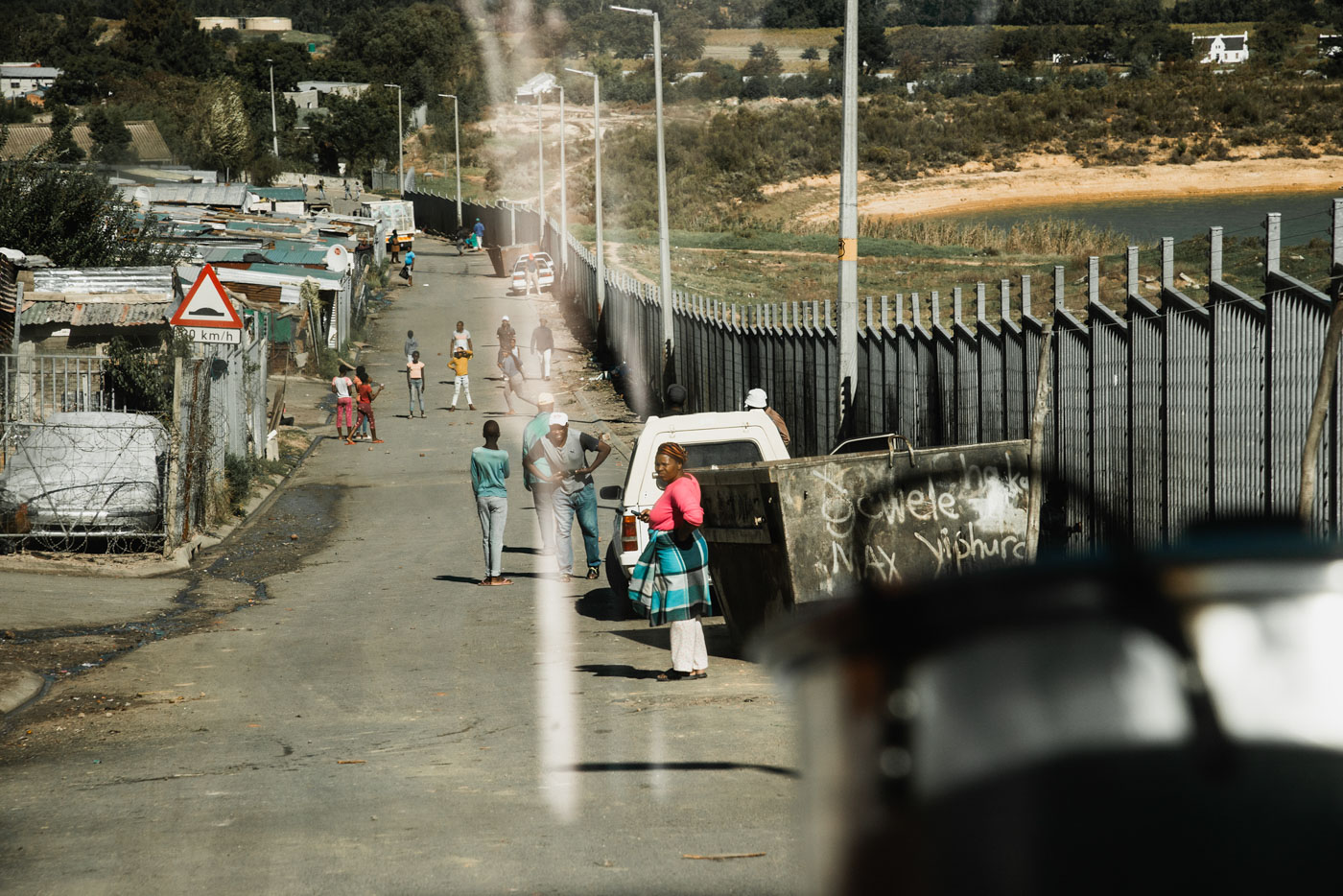
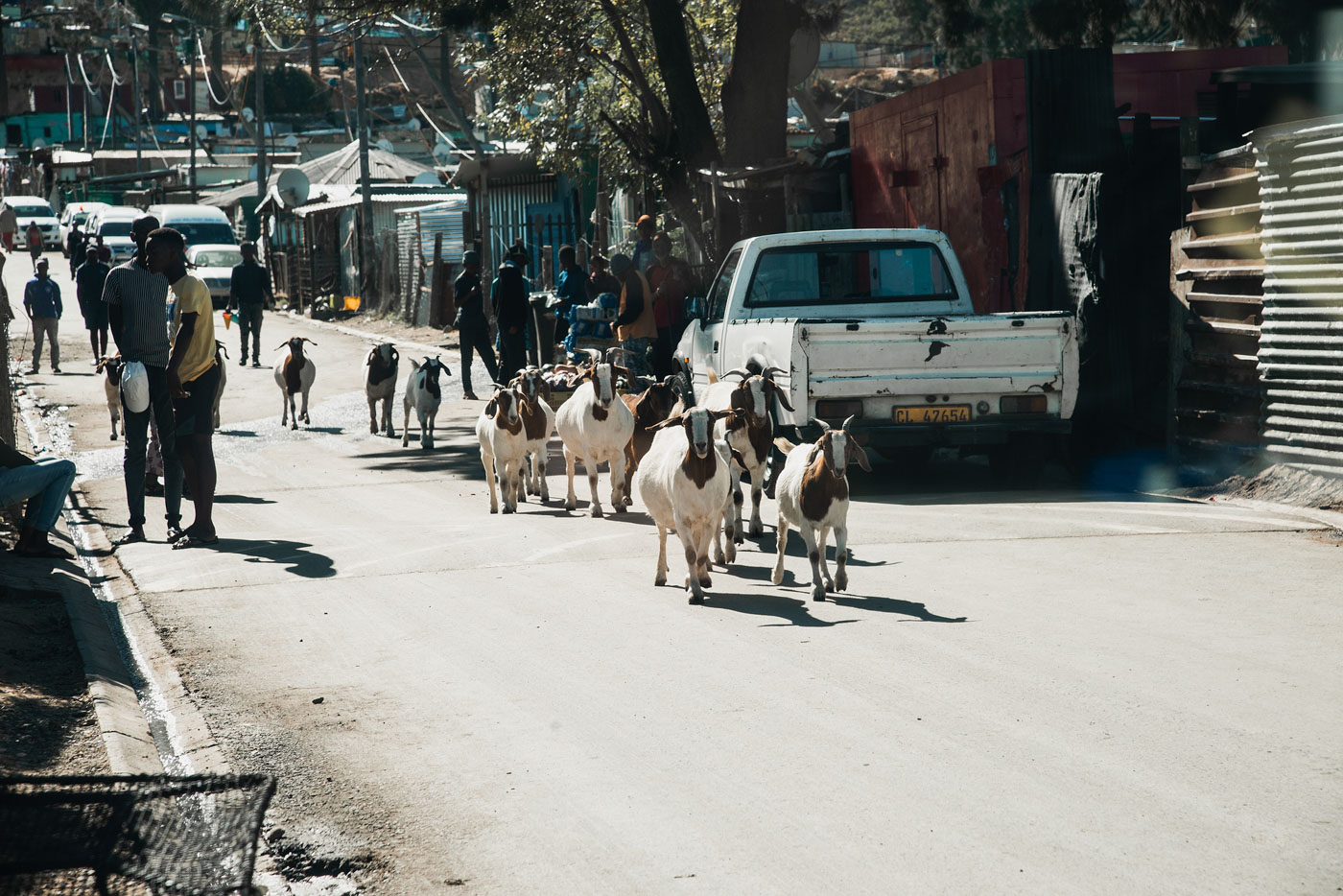
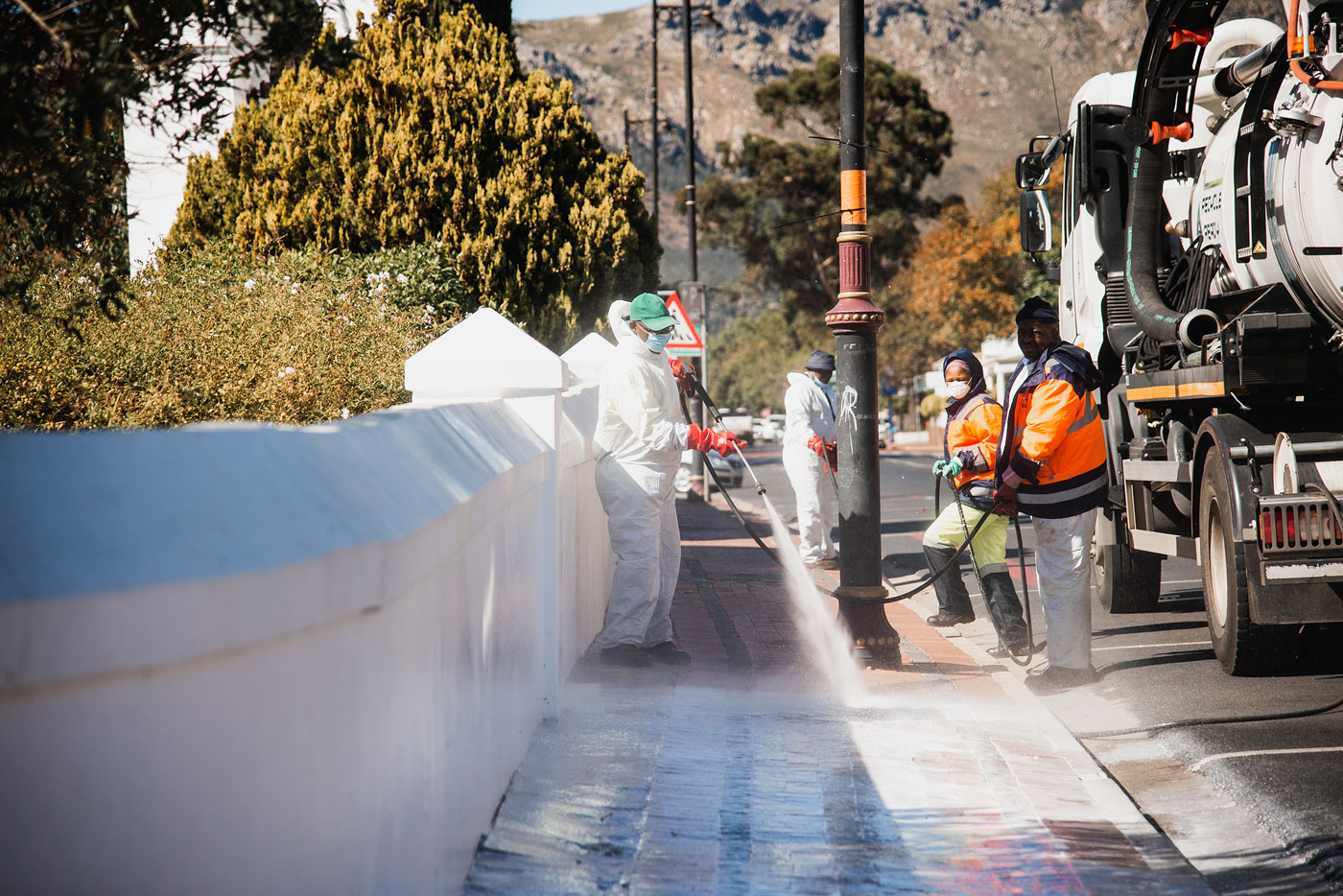
Since the lockdown began, it has been a long and destructive haul for the entire country’s already ailing economy, with hospitality, restaurants and alcohol producers hit particularly hard. But from the beginning, the people of Franschhoek have come together with an overflow of generosity and innovation—an effort that includes many chefs.
For Chris Erasmus of the highly-lauded Foliage Restaurant, whose customers are primarily international visitors, the virus has been a catalyst for personal change. In helping fire and flood relief efforts in previous years, Erasmus has grown closer to his community. “The more time I spent in the township, the more I realized how our staff on the floor lives and the need for change,” he says. Margot Janse—one of South Africa’s most revered chefs and formerly head chef of The Tasting Room at Le Quartier Français, a World’s 50 Best Restaurant—took a break from fine dining several years ago to address the issue of hunger in Franschhoek. Since 2009 (and full-time since 2017), Janse has run the organization Isabelo, which feeds 7,500 children per school week.
Both chefs are behind a massive community initiative called Together Franschhoek that currently feeds 15,000 Franschhoek residents each week. The initiative had its origins in a makeshift feeding program Erasmus began early in the lockdown with Ashley Bauer, who runs Franschhoek’s volunteer community fire response program, and was soon joined by Janse, who was already looking after Isabelo’s food recipients. Initially, a team of volunteers were assembling and distributing parcels of donated food to the community. They soon realized they faced new and significant challenges. It was labor-intensive, expensive, and most concerning, there were issues with ensuring the neediest were the ones receiving the parcels. Individual meals were also being cooked, packaged and frozen by a band of volunteer chefs in a monumental operation, but the distribution of these to the community had similar challenges.
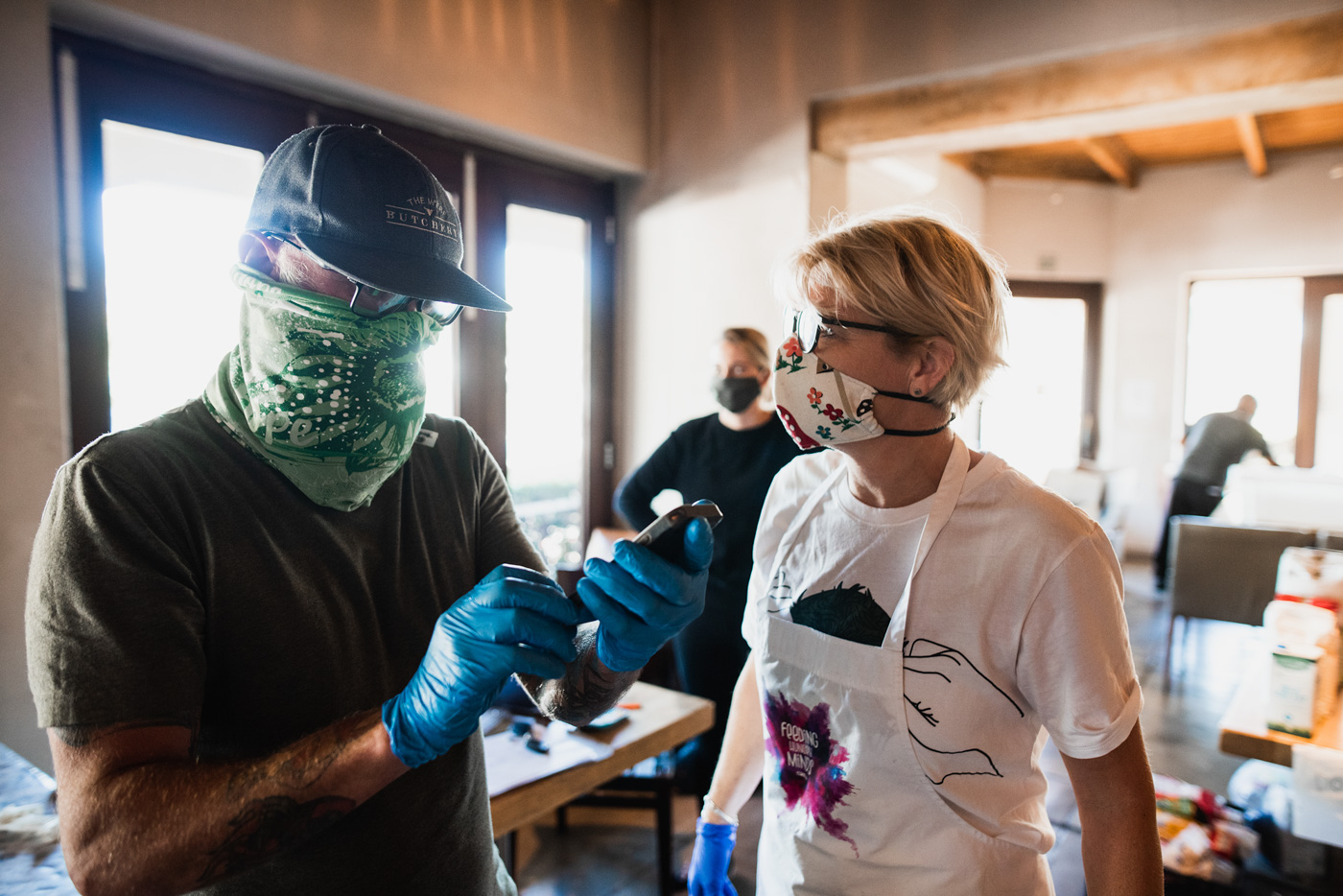
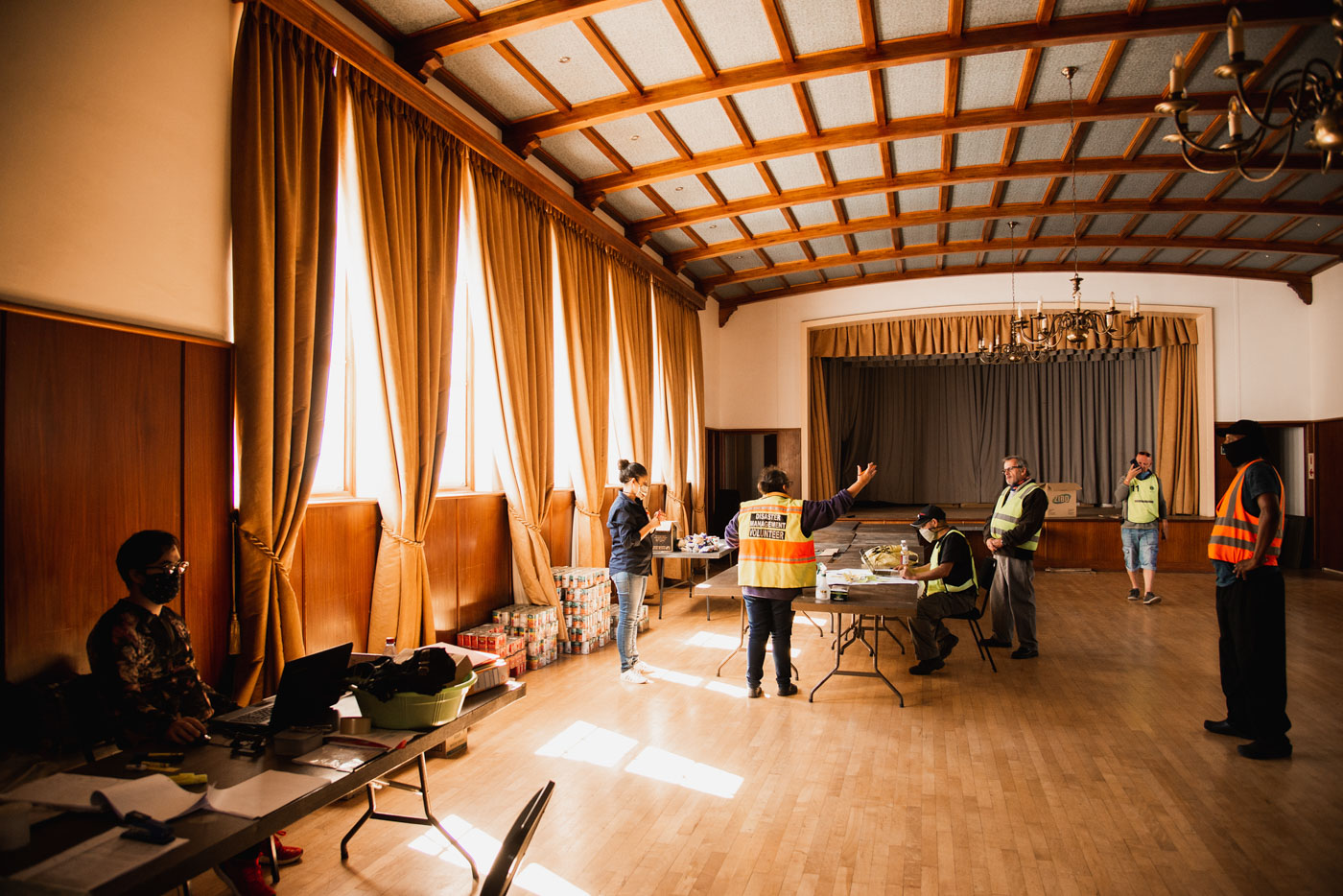
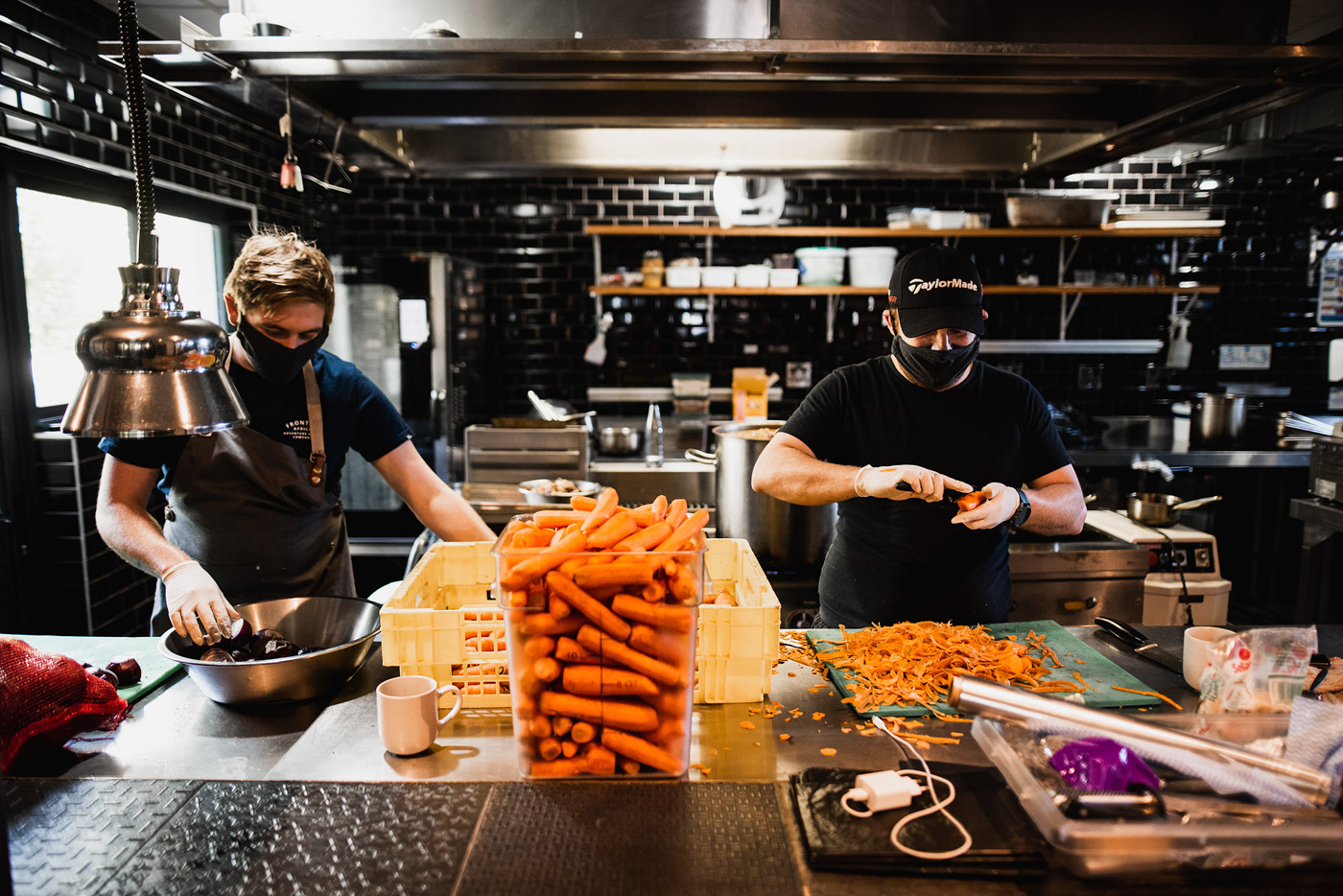
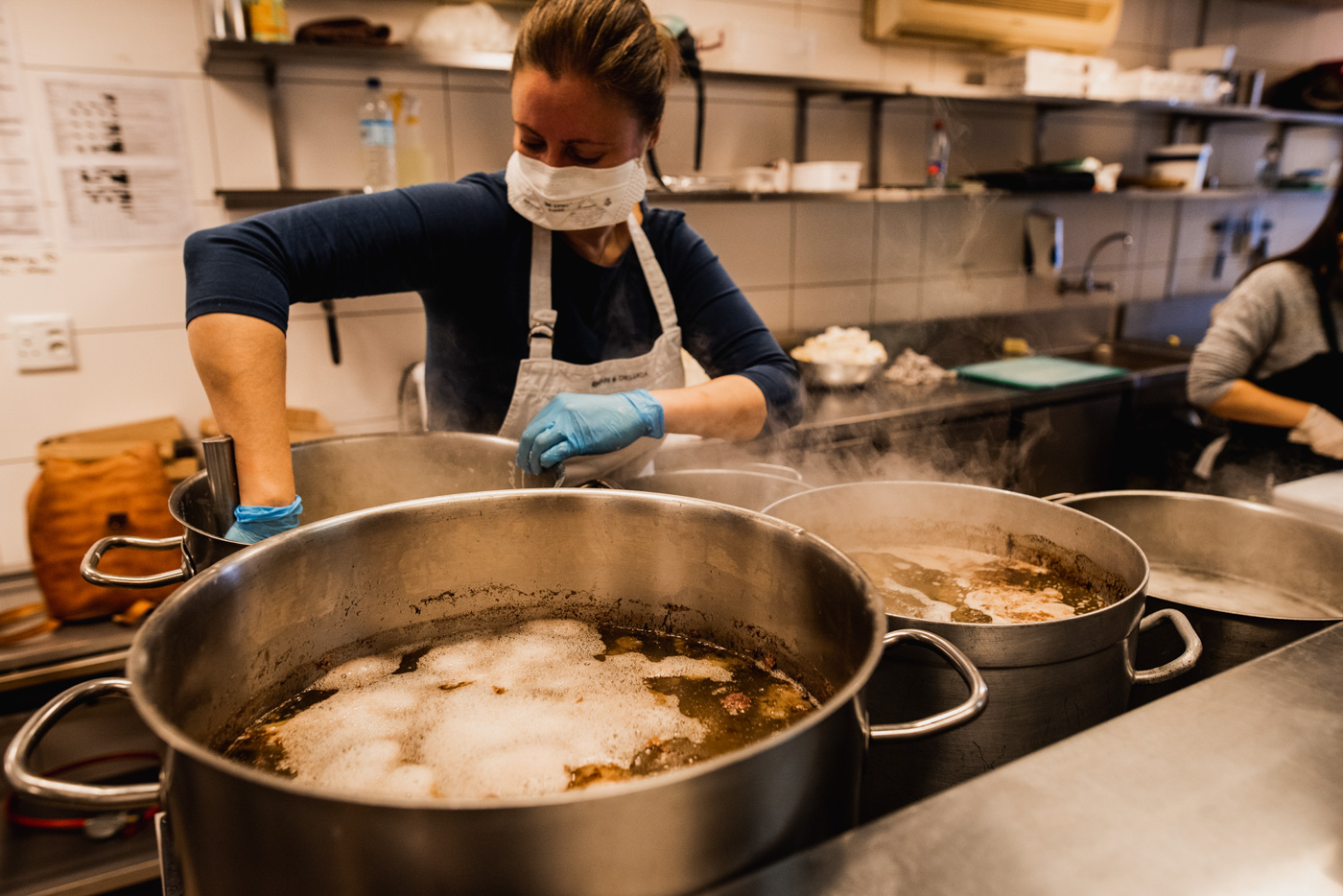
Out of this somewhat chaotic situation, a new non-profit community organization, Together Franschhoek, was born, which brought together the combined efforts of several local organizations including Janse’s Isabelo, to coordinate food relief to the community. Its focus is providing soup kitchens with basic starter kits of prepped vegetables, meat and pulses that are ready to quickly turn into nourishing meals.
The daily food prep is a considerable effort, particularly given the need to maintain social distancing within confined restaurant kitchens. Seven days a week, volunteer chefs and home cooks chop countless pounds of vegetables donated by farms and produce suppliers. Foliage Restaurant is the central depot for vegetables, and a pillar of community action. Wishlists are posted on the restaurant’s door appealing for needed items, ranging from cooking oil to spray paint, which is used to demarcate social distancing in soup lines.
Down the road, meats are processed, vacuum packed, and frozen at Chefs Warehouse at Maison, run by chefs Liam Tomlin and David Schneider, while Le Coin Français, owned by chef Darren Badenhorst, is the hub for beans, pulses and other ingredients. Since the feeding program began, colleagues from Cape Town (where restaurants are also closed) have been driving to Franschhoek to assist. Many have lost their jobs and this work is done without pay, but they have volunteered as a way to contribute their skills for the greater good.
With input from local soup kitchens, the team devised a democratic system of food distribution. “We supply five large plastic bags of vegetables plus one bag of meat for every one hundred people,” explains Erasmus. The prepped ingredients are delivered to the soup kitchens and meals can be completed in less than an hour. Cooked meals are also delivered three days a week to feed children through the Isabelo organization.
None of this would be possible without proper hygiene on the ground. When Franschhoek antique dealer Jeremy Astfalck had to close his shop, he created an innovative handwashing system which has made it possible to maintain hygiene and social distancing in the community. His system is lightweight and transportable, based on garden irrigation with sprayers spaced several feet apart. At each station is a nylon mesh bag containing a bar of soap. The soap never leaves the bag, providing the necessary cleansing and abrasion to clean hands properly. The system is supported by a water tank, which can be transported by pick-up truck. The pilot station was installed at the main Franschhoek taxi station, and now there are seventeen systems across the valley, with four more to be installed shortly. They are at key locations including taxi pick-up points, the post office (where people congregate to collect social services grants), and alongside soup kitchens. Here, recipients must line up and wash their hands before collecting their meals.
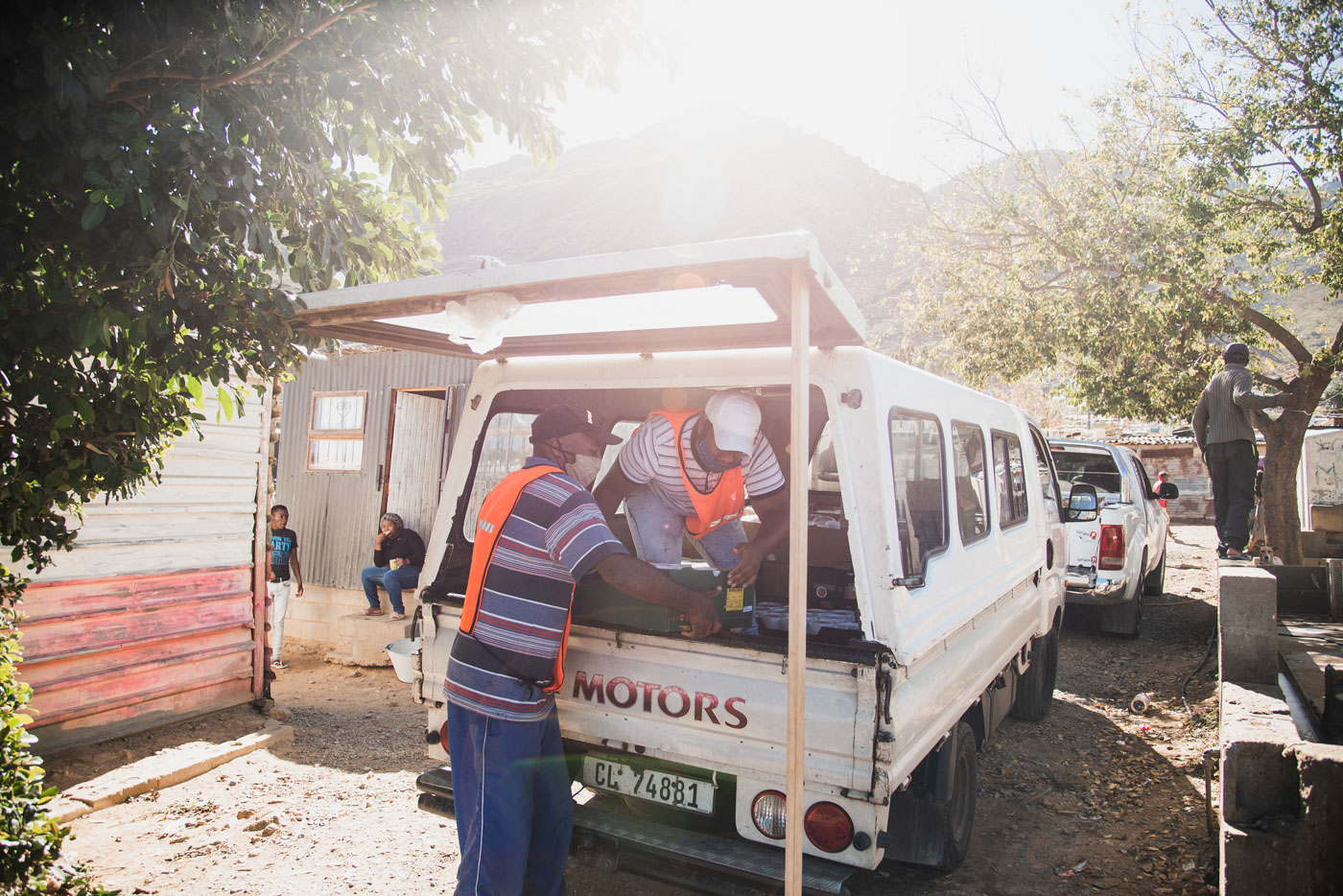
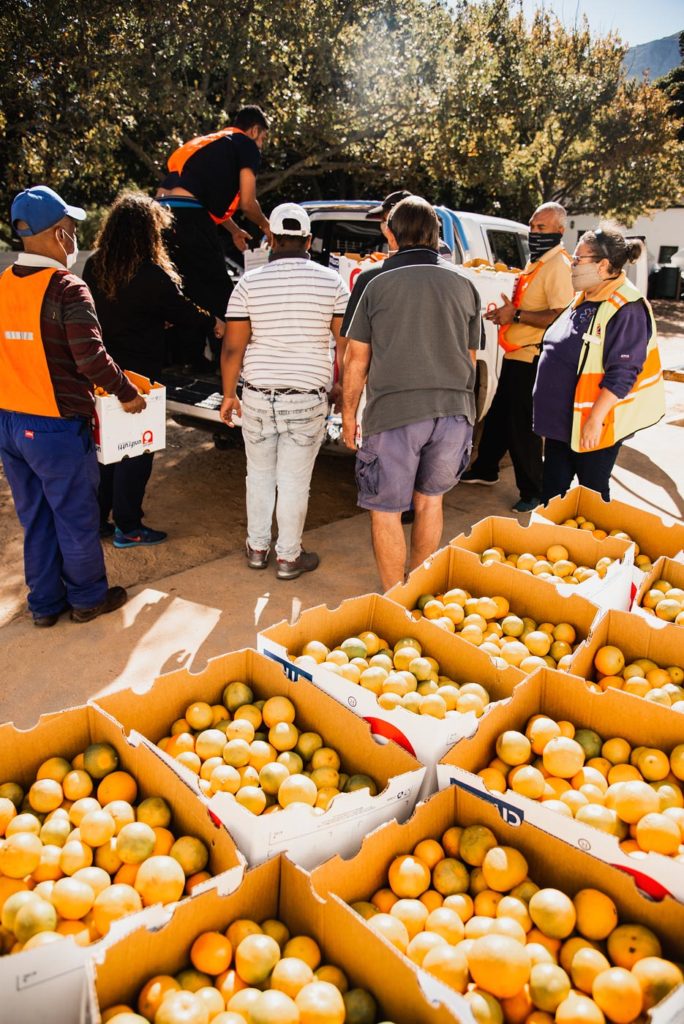
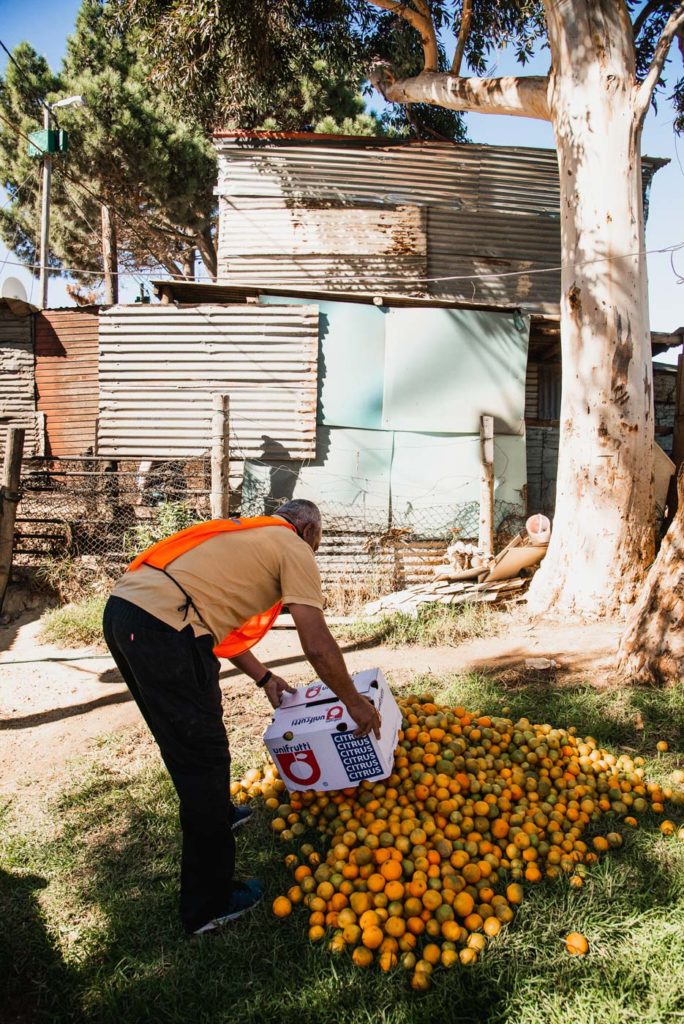
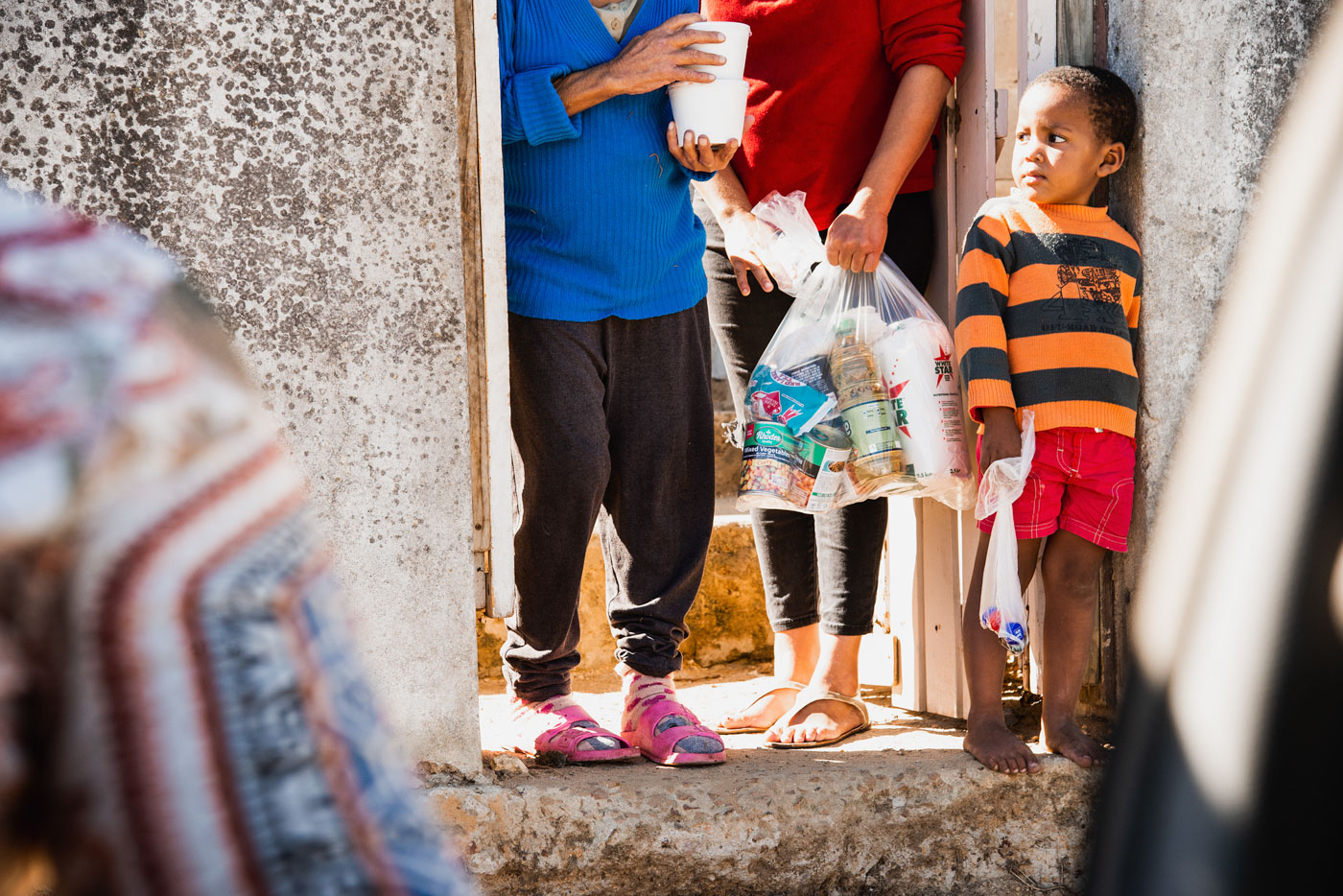
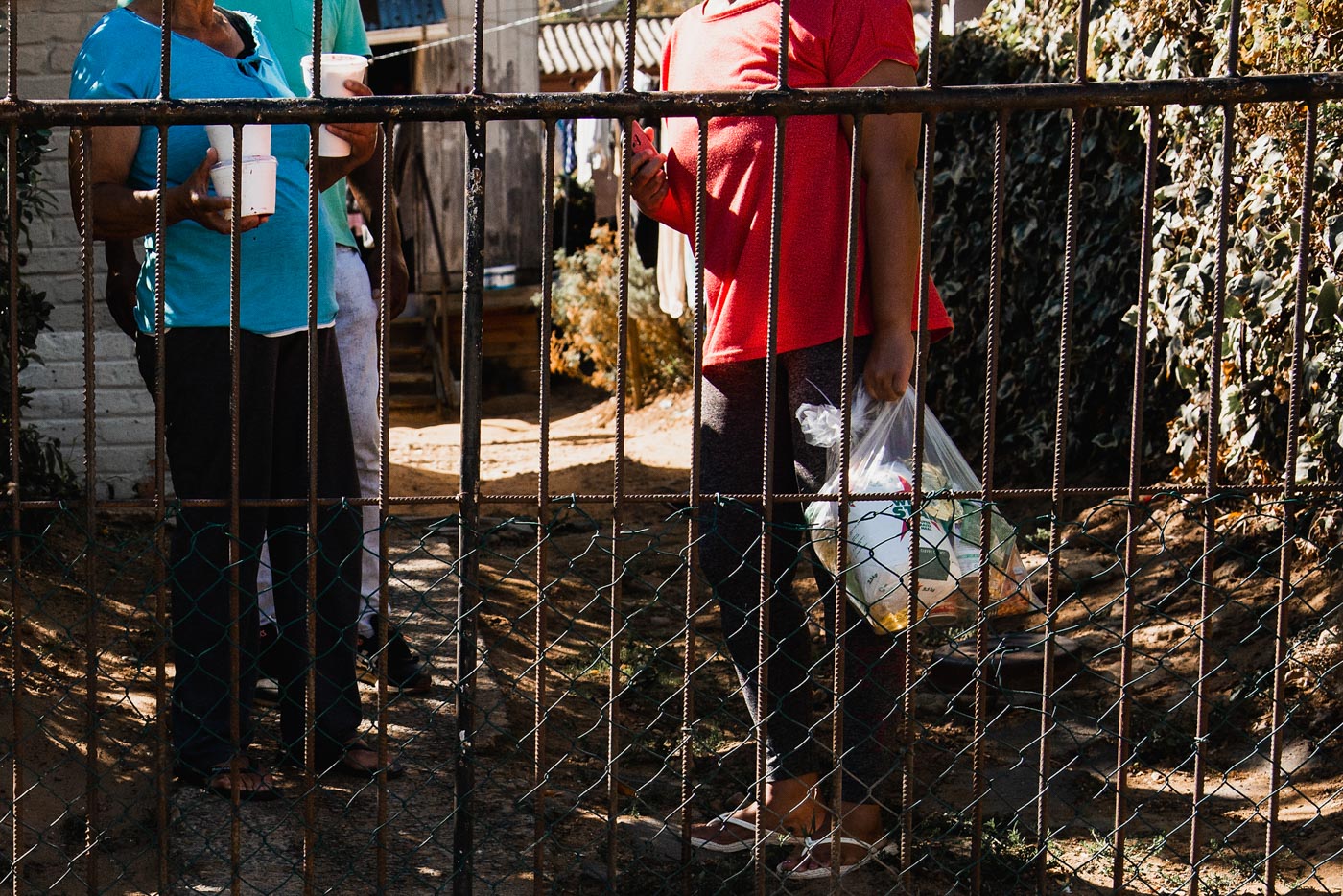
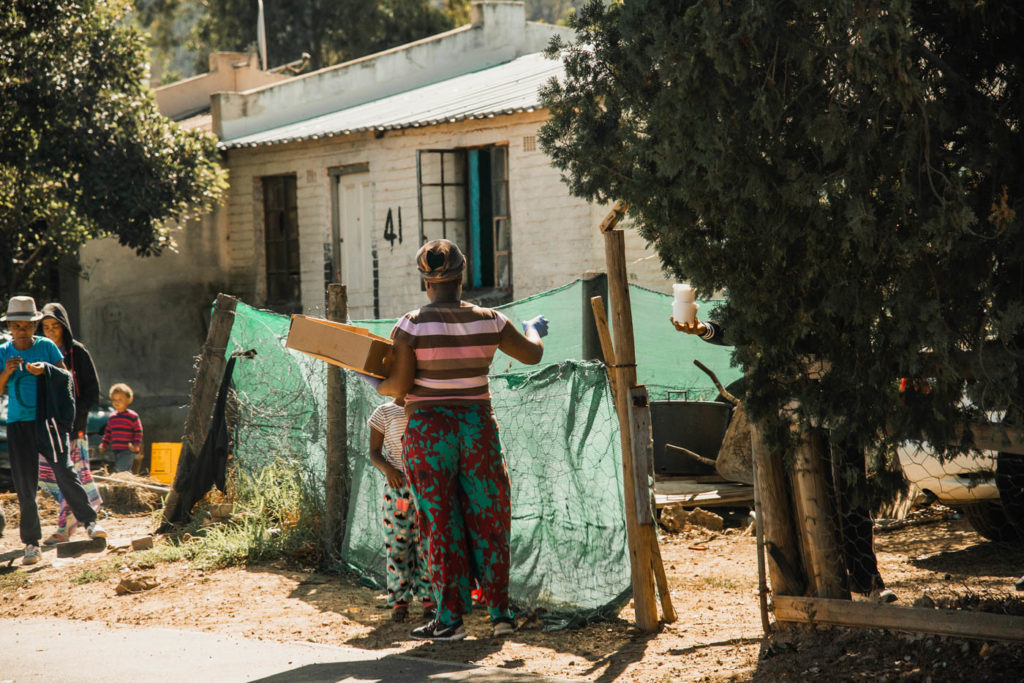
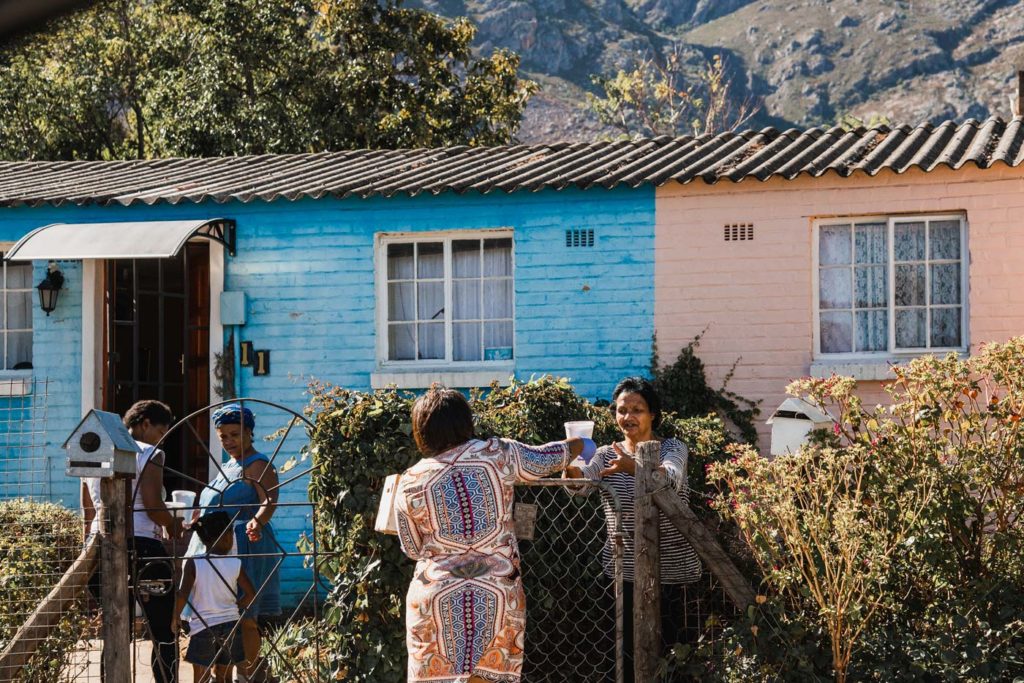
To receive community support, soup kitchens must be approved by Together Franschhoek, which ensures equal access to food across the valley. The biggest challenge has been accessing Franschhoek Mountain, where many of the area’s foreign nationals (legal and illegal residents from other African countries) reside. Astfalck, who handles food delivery logistics, says many are from Lesotho, a mountainous country with terraced villages, and have created illegal terraces of their own on the mountainside. Others are from Mozambique and Malawi. Language barriers, cultural differences such as foods that are unfamiliar, and xenophobia all present challenges. And despite the addition of reticence about crossing into areas where some foreigners believe they might be criminal targets, a location for a soup kitchen has been secured by Together Franschhoek.
Education plays a major role in the operation of soup kitchens. All are staffed by volunteers who teach children and adults about handwashing and facemasks. Boosting morale for those who tirelessly run these soup kitchens is also a priority; and to that end, Erasmus has supplied chef jackets and aprons to some and is working toward providing better cooking equipment.
Despite a frenzy in the beginning, the community feeding model is now working smoothly, and gives its volunteers a chance to look ahead. “It’s now time to secure our future,” says Janse. Like Janse did when she left her restaurant, Erasmus is now pivoting away from fine dining. “It’s all about the community. I can’t push that hard enough,” he says. “It’s about bridging a gap that should have been bridged years ago.” Realistically, the return of international tourism to South Africa is in the distance—possibly as far as away as 2021, Erasmus believes. With ninety-eight percent of his bookings from international visitors, he’s reinventing Foliage for a new era.
Erasmus has divided the Foliage space into two separate areas: a permanent area for soup kitchen prep, and a deli which will sell locally grown and produced foods. He refers to the deli as “Adopt-a-Chef,” with fellow Franschhoek chefs like Badenhorst, Oeloff Voster and Duncan Doherty cooking and baking their specialties. “You’ll be able to buy everything from sourdough and croissants to duck liver parfaits and terrines, and my signature barbeque dishes like the salted lamb rib I always have on the menu. Even cottage pies made with foraged porcinis and quince,” says Erasmus. He’s also selling preserved goods like wild bramble and nightshade jams, and smoked chilli sauces and powders from a crop of homegrown chillies.
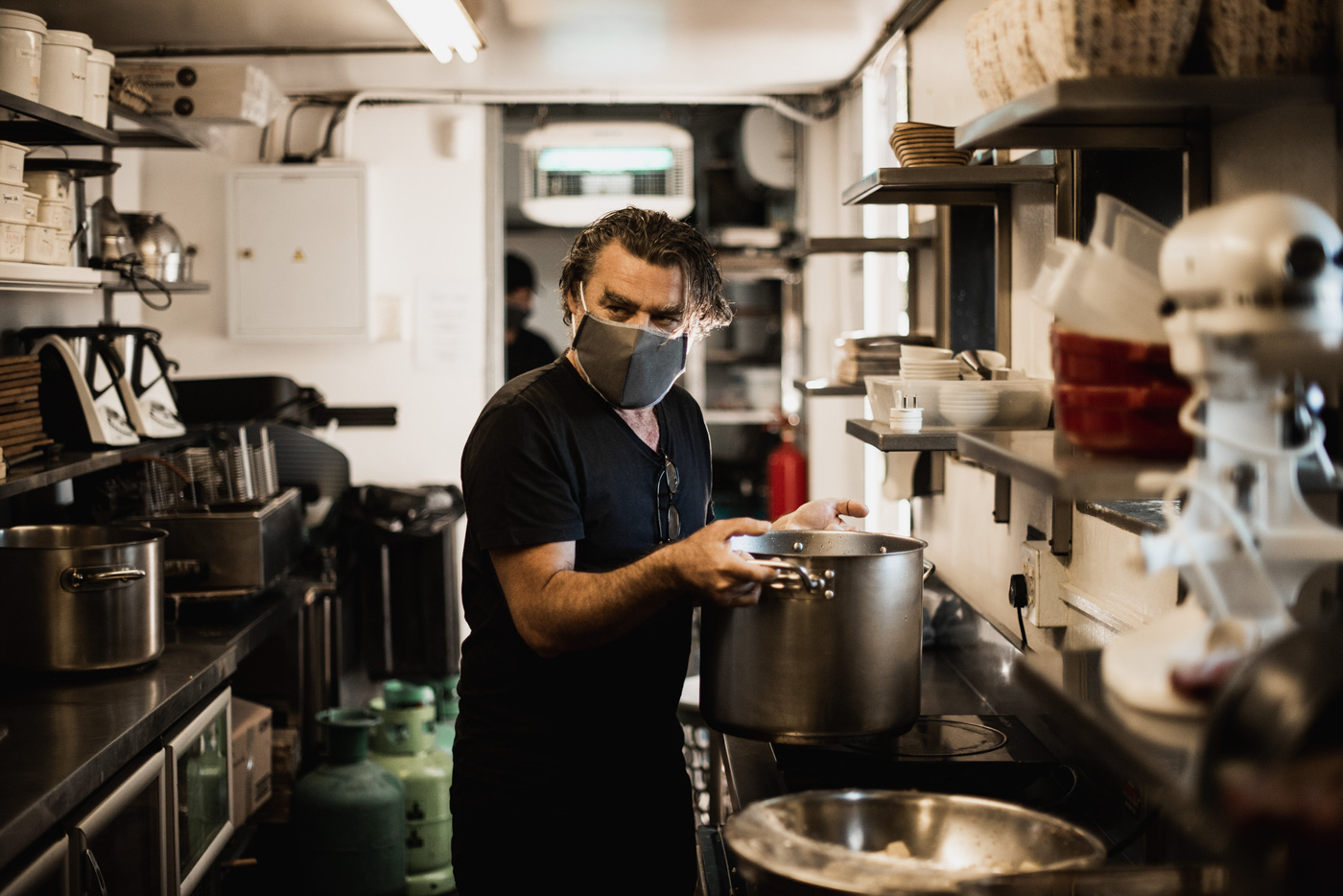
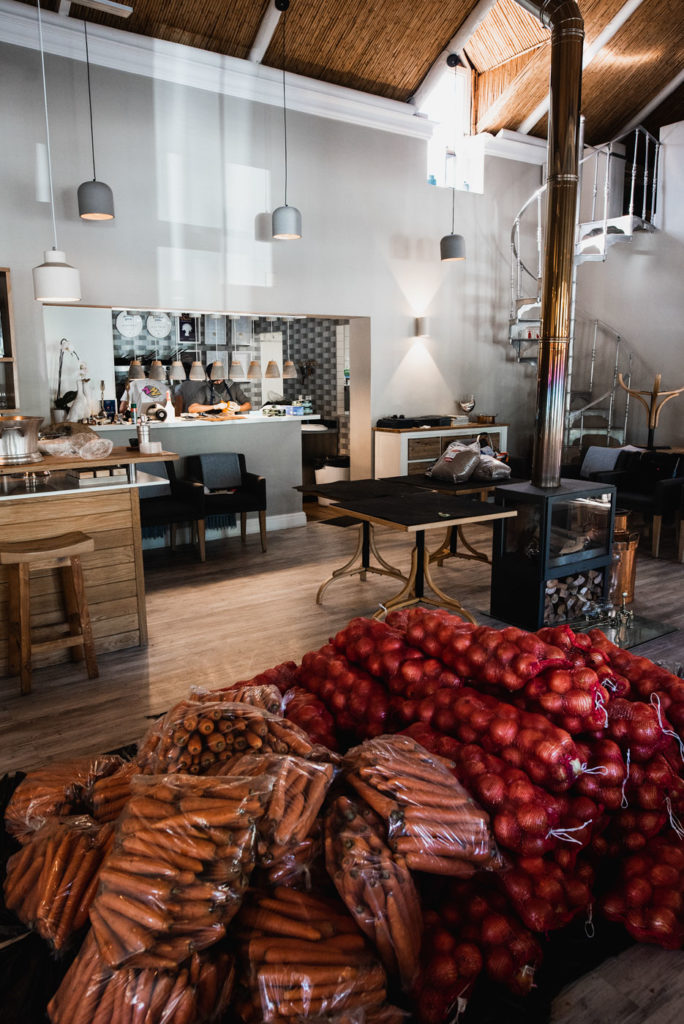
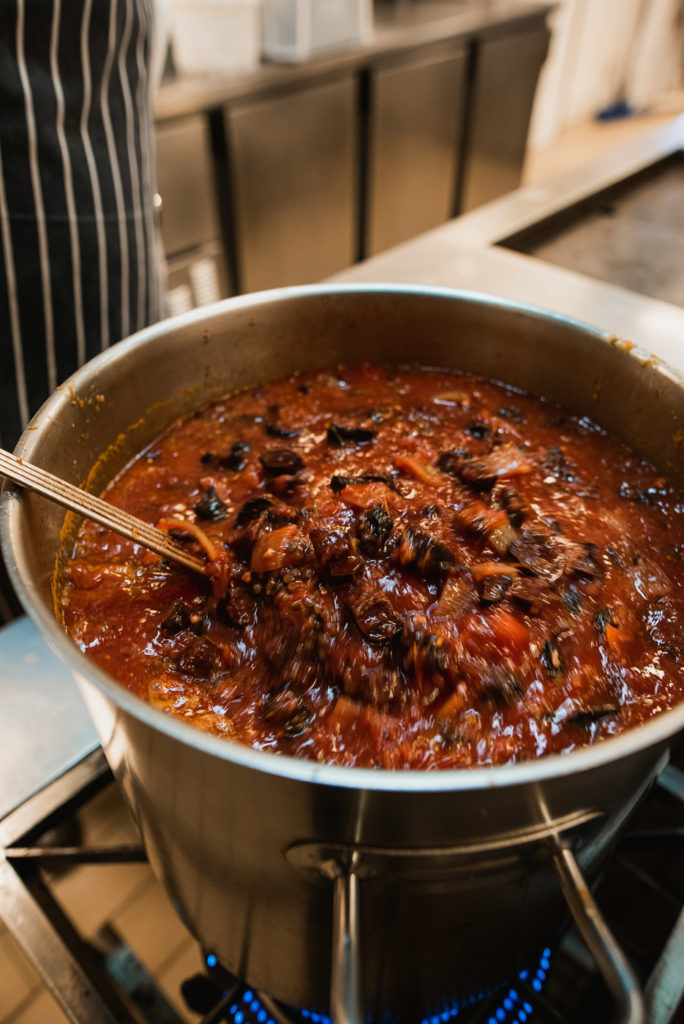
Janse and Erasmus believe farming for the community is the sensible next step for a more food secure future. A two-and-a-half acre garden has been planted for this purpose, which has been producing late summer vegetables. “On another larger plot, we’ve planted cabbages, peas, radishes, beets, kale, spinach, cauliflower and broccoli—winter vegetables that will tide us through. When we have planted all this land, which now amounts to six acres, we won’t have to rely on donations of veggies,” Erasmus says.
There is also a fresh, more urgent, and perhaps more meaningful interpretation of what it means to think like a locavore. For example, Erasmus received a donation of over 2,000 pounds of local tomatoes, which he cooked down into tomato sauce to be used over the winter months. Any rotten tomatoes went to a valley pig farmer. Come mid-winter, Together Franschhoek will buy pigs from the farmer and the meat will go toward feeding the community.
Astfalck believes this might be a blueprint for other South African communities. While the need is deepening each week, so is the sense of community, with people from all backgrounds working together. “There are no titles anymore, or awards,” Erasmus says. “We are really one community—one team. We have to look after each other.”






Our comments section is for members only.
Join today to gain exclusive access.